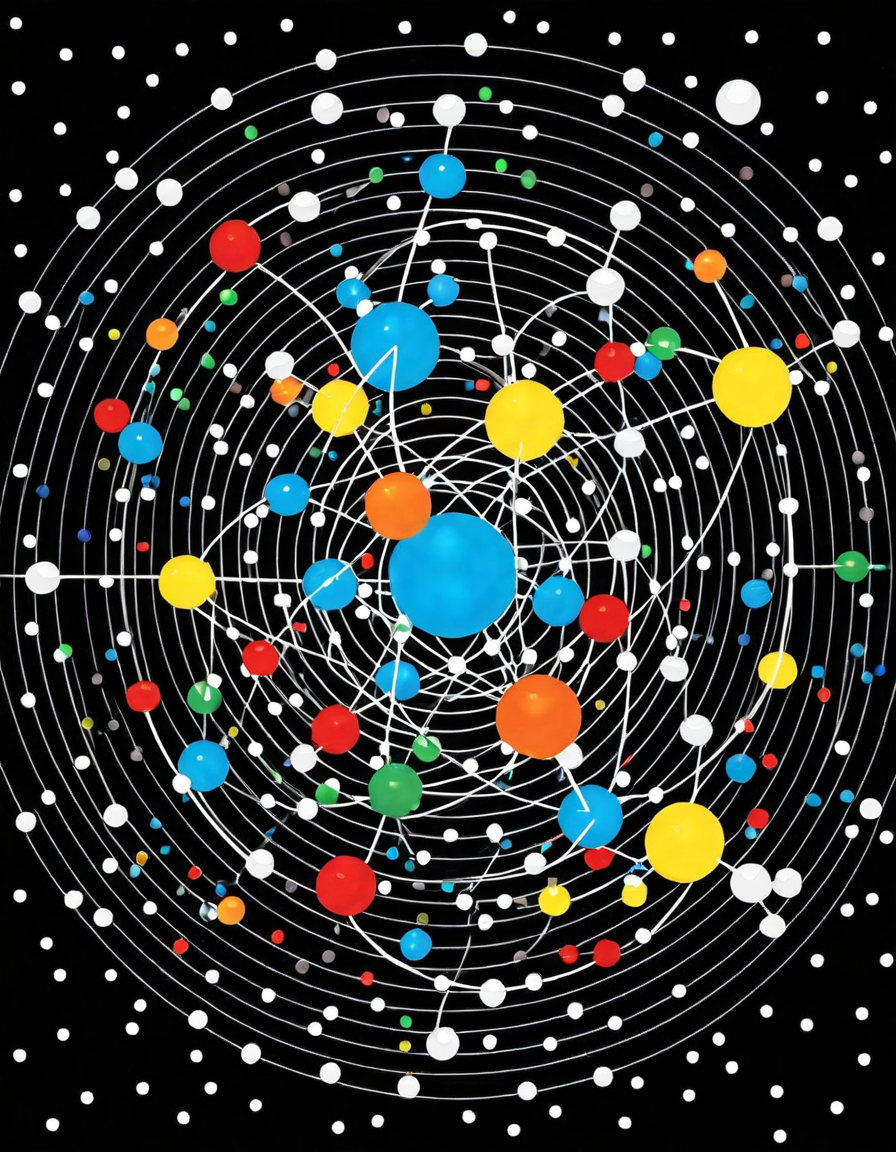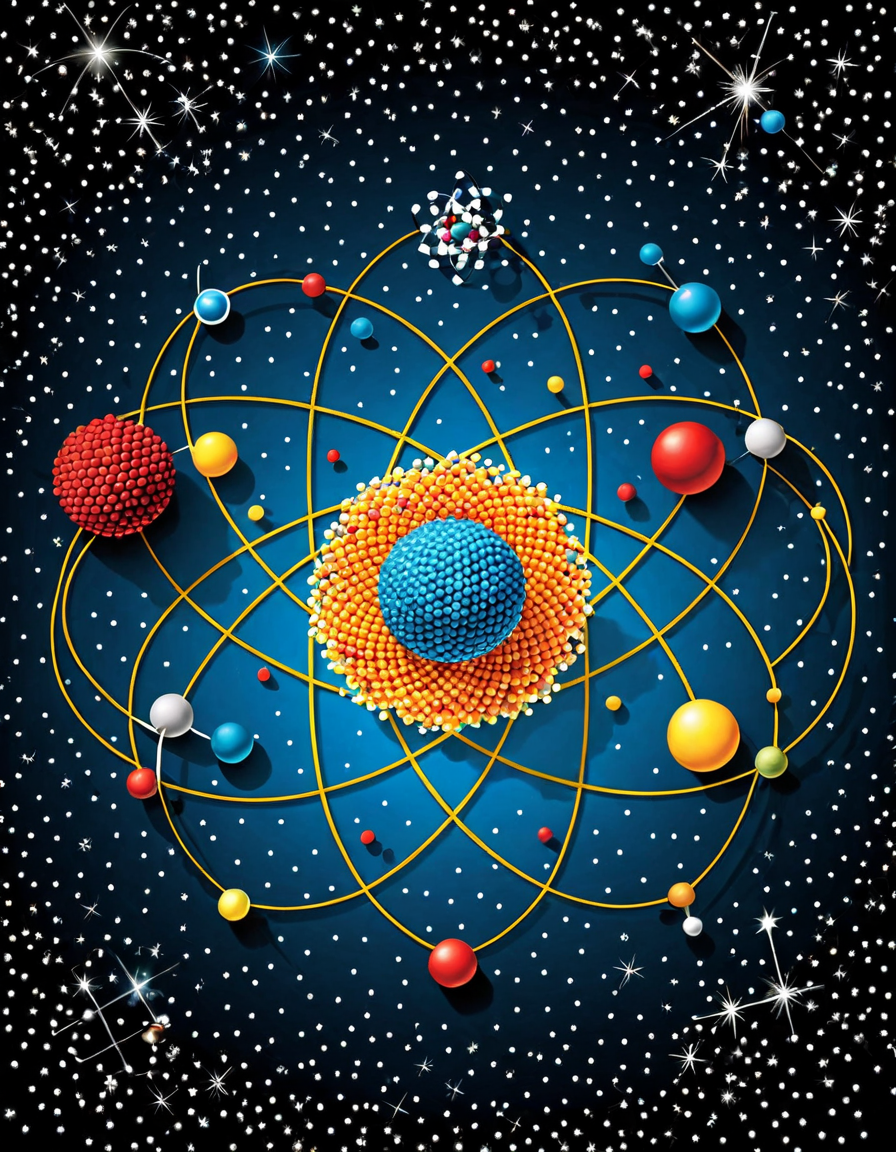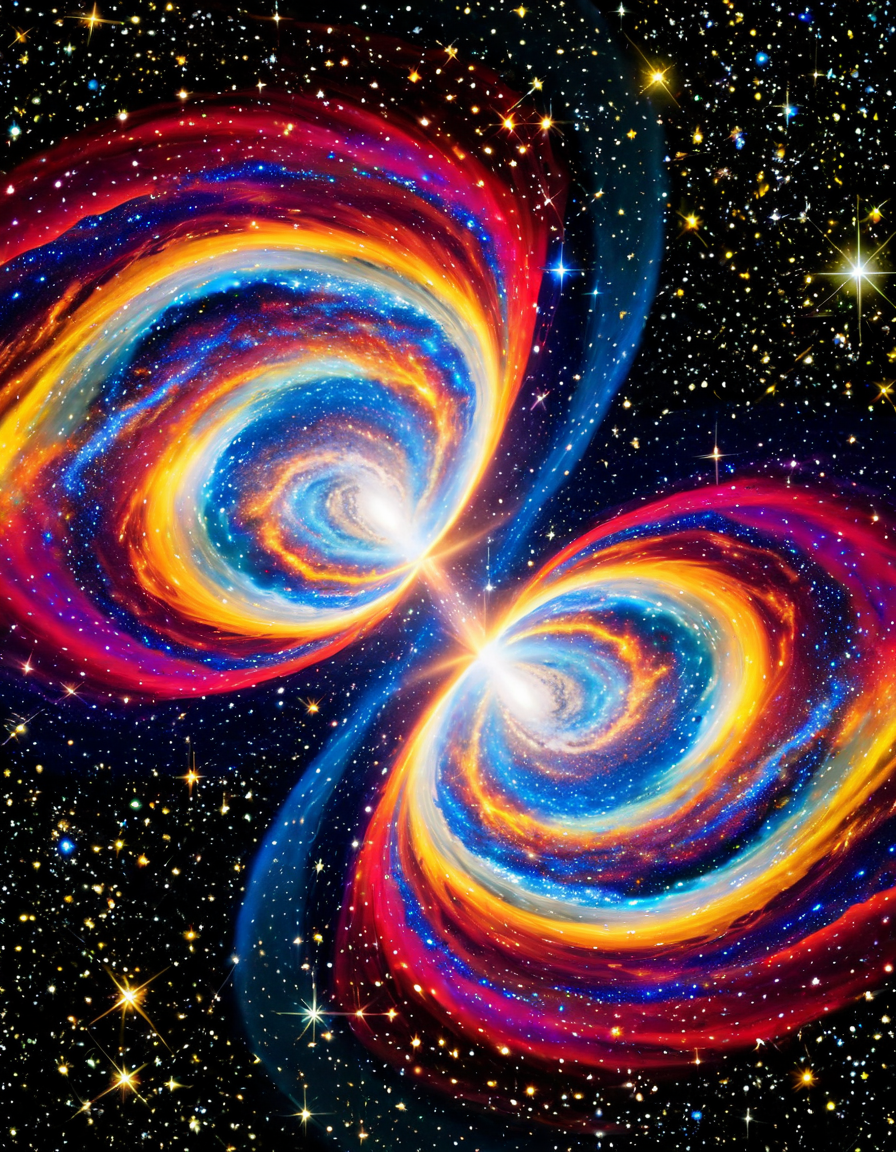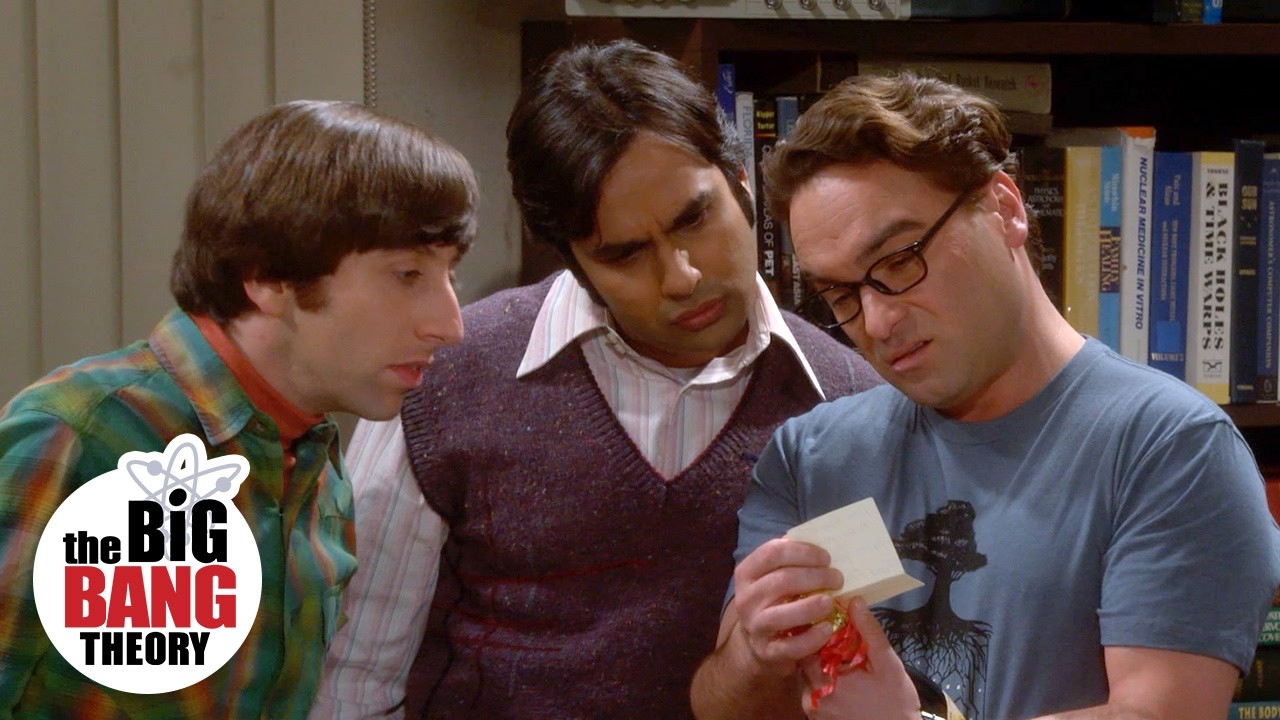Here we are, diving into the Big Bang Theory, a concept that not only explains the origins of our universe but also influences pop culture and cinema. Buckle up, because we’re about to explore the cosmic phenomena that gives so much fodder for sci-fi flicks, textbooks, you name it! Whether you’re a die-hard cinephile or just casually curious, understanding the Big Bang Theory offers a glimpse into the universe’s most fascinating secrets. It’s as much a part of our cultural fabric as the latest blockbuster hits, and it’s time we dive into the details.
1. Understanding the Big Bang Theory: Foundations of Cosmology
The Big Bang Theory posits that the universe began as a densely packed point hot enough to cause everything around it to explode outward, creating space, time, and matter as we know it. Let’s break down some key concepts. Our universe transitioned from a singularity, a point of infinite density, to the expansive cosmos teeming with galaxies, stars, and cosmic dust.
Key Concepts:
These principles form the foundation that we build more complex ideas on. The Big Bang Theory is our cosmic anchor, but it’s just the start of the mysteries waiting to be solved.

2. Top 5 Mysteries Surrounding the Big Bang Theory
With great theories come great mysteries. The Big Bang Theory lays the groundwork for understanding the universe, but several cosmic questions still challenge scientists. Let’s break down five major enigmas.
2.1 Dark Matter and Dark Energy
Ever heard of dark matter? It makes up about 27% of the universe—yet we can’t see it! Dark energy, making up an astonishing 68%, is believed to be driving the universe’s accelerated expansion. If only we could get a glimpse of these cosmic players!
2.2 Cosmic Inflation
Inflation theory proposes that just after the Big Bang, our universe underwent exponential growth. But what triggered this wild expansion? Various models suggest quantum fluctuations, but there’s no strong consensus yet.
2.3 The Fate of the Universe
Will we face a “Big Freeze,” where galaxies drift apart forever, or are we looking at a “Big Crunch” that might restart the cycle? The universe’s ending is just as mysterious as its beginning.
2.4 Matter-Antimatter Asymmetry
In the universe, matter prevails while antimatter is a rare find. Why this imbalance exists is a huge puzzle that calls into question what we understand about physics.
2.5 The Periodic Table’s Origins
The Big Bang Theory explains how light elements like hydrogen and helium formed in the early universe. But where do the heavier elements come from? It’s a question of stellar nucleosynthesis that continues to baffle scientists.
3. The Big Bang Theory Cast: Influencers of Cosmological Thought
Just like every blockbuster needs a star-studded cast, the Big Bang Theory has its share of brilliant minds who’ve shaped our understanding of the cosmos. Let’s shine a light on a few of these trailblazers.
3.1 Georges Lemaître
Known as the “father of the Big Bang,” Lemaître was the first to propose that the universe is expanding. His groundbreaking ideas paved the way for modern cosmology and challenged many traditional views.
3.2 Edwin Hubble
Thanks to Hubble’s Law, we realized that galaxies are racing away from us, leading to the conclusion that our universe is indeed expanding. His contributions are forever etched in the scientific community.
3.3 Stephen Hawking
Ah, the iconic figure! Hawking’s work on black holes and singularities has deeply intertwined with the Big Bang Theory. His ability to translate complex ideas into accessible language has inspired countless enthusiasts to ponder the cosmos.

4. Popular Culture and the Big Bang Theory
When we think of the Big Bang Theory, it’s hard not to mention its impact on popular culture, including television, films, and literature. Here’s how these ideas have resonated beyond the scientific community.
4.1 The TV Show: A Cultural Phenomenon
The sitcom “The Big Bang Theory,” which aired from 2007 to 2019, was more than just laughter. It cleverly blended scientific discussions with a relational comedy, turning complex theories into relatable moments. Who knew nerds could be so charming?
4.2 Science in Movies
Films such as “Interstellar” and “Contact” dive into the depths of astrophysics while entertaining audiences. Movies like these have sparked interest in cosmic inquiries, demonstrating just how thrilling science can be.
4.3 Literature’s Contribution
Books like “The Grand Design” by Stephen Hawking and Leonard Mlodinow have made the Big Bang Theory accessible to wider audiences. They serve as excellent entry points for those captivated by cosmic mysteries.
5. Exploring Future Directions in Cosmological Research
Peeking into the future, scientists are constantly pushing the boundaries of our understanding of the universe. Current research initiatives offer exciting avenues for discovery regarding the Big Bang Theory.
5.1 The James Webb Space Telescope
Launched in December 2021, this telescope is designed to take us back in time, probing the universe’s first galaxies. What secrets might it reveal? Only time will tell!
5.2 Advancements in Particle Physics
Research at CERN has the potential to unravel some mysteries surrounding dark matter and forces shortly after the Big Bang. These experiments could illuminate our understanding of cosmic evolution.
5.3 Collaborations Across Disciplines
Researchers from physics, cosmology, and philosophy are joining forces, offering a multi-faceted approach to explore fundamental questions about existence. This team effort could hold the keys to unlocking the universe’s deepest secrets.
Shaping Our Cosmic Understanding
The exploration of the Big Bang Theory and its mysteries not only informs our scientific knowledge but also challenges us to reflect on our place in this vast universe. As technology marches forward, so does our capability to decipher the cosmos’ secrets.
With every question answered, new questions arise, fueling the drive that brings eager minds closer to the celestial wonders. This journey is a reminder of humanity’s quest for knowledge and an invitation for future generations of thinkers. Whether you’re a fan of the “Big Bang Theory” sitcom or fascinated by authentic cosmic phenomena, there’s no denying this theory’s significance as we look up at the stars. Now, how cool is that?
As we close out our cosmic adventure, remember: whether it’s understanding dark matter or enjoying a quirky sitcom about scientists, the mysteries of the universe are never far from our reach. So keep looking up, and who knows what you might discover next!
The Big Bang Theory and Its Cosmic Mysteries
Fun Facts You Didn’t Know
Did you know that the big bang theory has sparked more than just interest in the cosmos? It’s also ignited conversations in pop culture! For instance, a hilarious moment in the classic Airplane Movie showcases how even the complexities of cosmology can lead to comedic gold. While you’re laughing at those gags, the theory itself explains how our universe started from a singular point, approximately 13.8 billion years ago, expanding ever since. Talk about a cosmic party!
Now, let’s take a little detour. The big bang theory isn’t just a topic for physicists but has become a part of mainstream dialogue, thrust into the limelight by figures like Rishi Sunak, who have discussed its implications during various events. It seems the expansion of the universe has gotten folks from all walks of life curious about what lies beyond our planet. This connects back to how contemporary storytelling, such as the works by Shonda Rhimes, often explores heavy themes, pushing characters to ponder their place in the universe, much like we do when considering cosmic origins.
Cosmic Connections
While the big bang theory may sound like pure science, it’s got profound connections to humanity’s deeper questions. Just think: the incredible evolution of our universe is mirrored in our own lives. Complexity arises when we delve into string theory or multiverse hypotheses, twisting our brains like the Ysl Babycat collection twists expectations in fashion. And speaking of unexpected, remember Cuba Gooding Jr.? His iconic performances remind us that sometimes in life, as in the universe, the most chaotic moments shine the brightest.
Before we wrap things up, let’s ponder a bit more about pioneers like Alan Turing. Much like how Turing revolutionized technology, the big bang theory has changed our understanding of time and space. And with the quest for knowledge, you might need to consider how a home warranty cost works, as researching can sometimes feel overwhelming! Amidst it all, the big bang theory stays a reminder that from chaos comes beauty, igniting our imaginations and pushing us to explore the great unknown.







